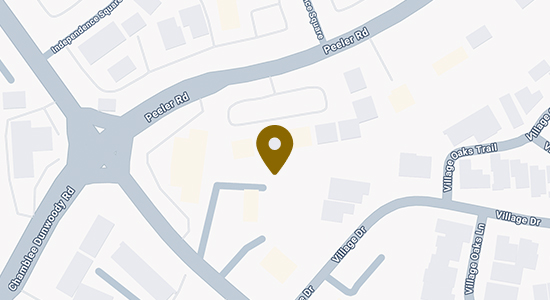- Contact Us Now: (770) 285-8008 Tap to Call
Commercial Torts Fundamentals

1. What Does the Relationship Between Business Tort Claims and Contract Claims Look Like?
Business tort claims is that it addresses civil wrongs in a business or commercial relationships. Contract claims address an agreement between parties. In many cases, business tort claims and contract claims are linked because a business relationship and its responsibilities are held in a contract, and a business tort claim may emerge because of a reach of that contract.
2. What Are Some Business Tort Claims?
A business tort claim arises from law and its definition and breach of a duty. Some common business tort claims are breaches of fiduciary duty, tortious interference, and product liability.
3. What Is a Breach of Fiduciary Duty?
A breach of fiduciary duty is a claim of negligence of the duties from a fiduciary relationship. A fiduciary relationship is where parties put trust within each other to fulfill their duties.
4. What Are the Different Types of Tortious Claims?
The different tortious claims are tortious interference with contractual relationships, business relationships, and prospective advantage/business opportunities. In tortious claims a party will intentionally interfere with a third party business relationship. The tortious claims have similar basic elements. These elements are a contract, the defendant’s knowledge of the contract, the defendant’s intentional negligence of the contract, and the cause of the interference of the contract.
5. What Are Product Liability Claims?
Product liability claims are claims of negligence that are based on defects of a product. There are many parties that arise during the distribution process; designers, manufacturers, distributors, retailers, and suppliers. Product liability claims are based on defective design, manufacturing, labeling, packaging, and/or distribution of a product.
6. What Are Unfair Business Practices?
Unfair business practices are practices that use a deceptive or unethical method to obtain business profits or benfactories. Some unfair business practices include fraudulent misrepresentation, trade secret misrepresentation, disparagement, and antitrust.
7. What Is Fraudulent Misrepresentation?
Fraudulent misrepresentation is what occurs when a party lies or holds information to hurt another party in a business transaction. The four elements of fraud are an incorrect representation of facts, the intent to manipulate, the dependency on the intent of deception, and injury from misrepresentation.
8. How Can You Win on a Trade Secret Misappropriation Claim?
A trade secret is some piece of information that can give a party or entity an advantage over other competitors. To win on a trade secret misappropriation claim, the plaintiff has to establish the existence of there being a trade secret, the acquisition of a trade secret, and the disclosing of trade secret. There also must be reasonable measures to maintain secrecy of the trade secret. Some examples are client and supplier lists, manufacturing processes, patterns, marketing and advertising plans, business methods, personnel information, source code and algorithms.
9. What Is the Difference Between Disparagement and Defamation?
Disparagement is the publication of false and harmful statements against a party’s property or business. Defamation is the publication of false and harmful statements against an individual.
10. What Are Some Anti-Trust Laws?
Antitrust laws are regulations that prevent or remedy monopolies when a singular company controls the entire market for a product and promotes competition. Some antitrust laws are the Sherman Antitrust Act, Clayton Act, Robinson-Patman Act, and the Federal Trade Commission Act. The Sherman Antitrust Act prohibits making contracts and agreements that jeopardizes trade. The Clayton Act reinforces the Sherman Antitrust Act and prohibits certain practices that restrict a competitive market. The Robinson-Patman Act prohibits large buyers from forcing suppliers to sell goods at lower prices than those offered to smaller businesses. The Federal Trade Commission Act protects the market from unfair methods of competition and unfair practices in commerce relations.
11. When Is a Claim of Infringement or Dilution Brought On?
A claim of infringement or dilution is brought on when someone uses the intellectual property of another’s without permission. This could involve trademarks, patents, and copyrights. A copyright is the legal right to the owner of a piece of literature, art, or music to produce, perform, record, and/or make alterations to the piece. A trademark is a specific symbol that indicates a business’ identity of its certain goods and services. A patent is something that grants the patent holder the right of excluding others from making and selling the invention for a limited time.
12. Are There Remedies for Business Tort Claims?
Yes, there are remedies against business tort claims. Business torts can be affected by federal and state regulation and case law. Damages to business torts include damages to reimburse the plaintiff for any harm caused by a defendant and additional damages to deter these harmful activities to others. To remedy a business tort claim, there are many injunctions that can be implored, such as restraining orders, preliminary and permanent injunctions. A preliminary injunction is an injunction that is granted before a trial. A permanent injunction is a court order that requires a person to stop doing a certain action.
13. Are There Damages Available for Breach of Contract?
Yes, there are damages for a breach of contract. These damages are usually compensatory and put the plaintiff in the position if the contract was fulfilled. There could be consequential damages that are available if they were discussed when the contract was made. Punitive damages can be assessed when a defendant has done reprehensible actions towards the plaintiffs. In some cases a contract has a liquidation of damages clause, which will specify the types of damages if a breach of contract occurs.
14. What Is the Economic Loss Rule?
The economic loss rule is a rule that prohibits parties from recovering tort when another’s negligence results in some form of economic loss. An economic loss is essentially a financial loss suffered by a member of the contract. This does not include damage to tangible property\





